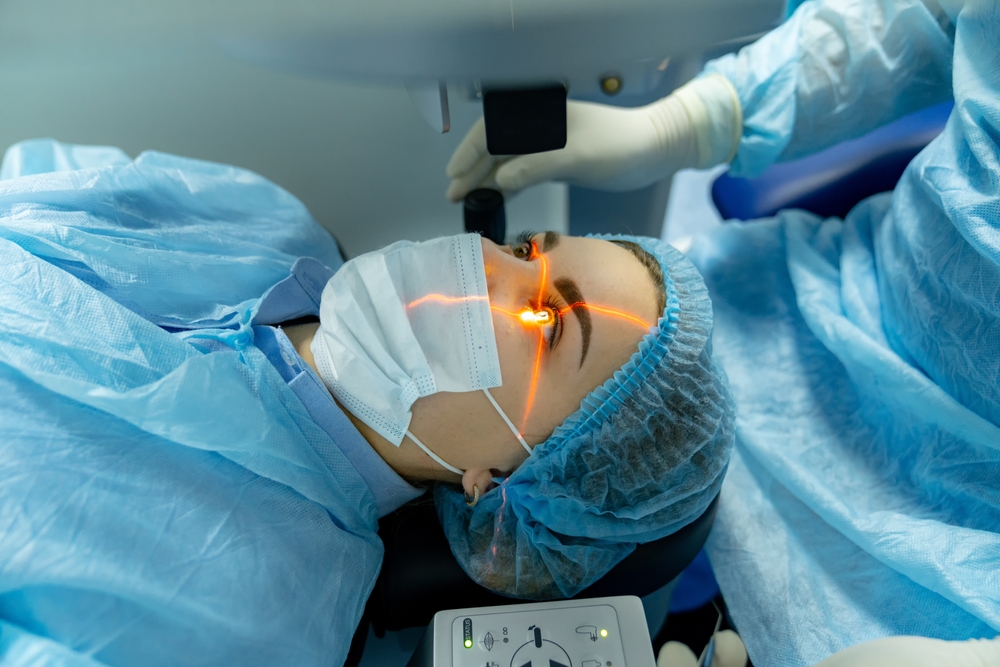
Eye Surgery in the Golden Years: Assessing Benefits and Risks for Senior Patients
The golden years, often associated with wisdom and grace, can also bring challenges to vision. Age-related macular degeneration, cataracts, and glaucoma, among other conditions, can significantly impact the quality of life for seniors. Fortunately, advancements in ophthalmic surgery offer hope for restoring vision and regaining independence. However, seniors considering eye surgery must carefully weigh the potential benefits and risks before making a decision.
Benefits of Eye Surgery in Seniors
Improved Vision and Quality of Life: With successful surgery, seniors can read, drive, engage in hobbies, and navigate their environment with greater confidence. This can lead to increased independence, improved social interaction, and a renewed sense of well-being.
Reduced Risk of Falls and Accidents: Impaired vision is a major risk factor for falls and injuries in seniors. By improving vision, eye surgery can help prevent accidents and maintain mobility.
Improved Mental Health and Cognitive Function: Studies have shown a link between poor vision and depression, anxiety, and cognitive decline. Restoring vision can improve mental health and cognitive function, leading to a better overall quality of life.
Reduced Dependence on Caregivers: Improved vision can help seniors remain independent and less reliant on caregivers for daily activities. This can be beneficial for both the patient and their family.

Risks and Considerations for Senior Eye Surgery
Increased Surgical Risks: While generally safe, eye surgeries carry inherent risks, especially for seniors. These may include infection, bleeding, and complications related to anaesthesia. Pre-existing medical conditions can further increase these risks.
Longer Recovery Time: Seniors may take longer to recover from eye surgery compared to younger patients. The recovery process requires careful planning and support.
Potential for Unsatisfactory Outcomes: While success rates are high, some surgeries may not fully restore vision or may have unforeseen complications. This can be emotionally challenging for patients who have high expectations.
Psychological Factors: Fear of surgery and anaesthesia, as well as concerns about ageing and health, can be significant hurdles for seniors considering eye surgery. It is important to discuss these concerns freely and honestly with the surgeon.

Pre-surgical Assessment and Planning for Seniors
A thorough pre-surgical assessment is necessary for seniors to get the best possible outcomes while minimising risks. This includes:
Detailed Ophthalmic Examination: A comprehensive eye exam will determine the specific condition, its severity, and suitability for surgery.
Medical History Review: Pre-existing medical conditions, medications, and allergies need to be carefully considered to assess potential risks and complications.
Physical Examination: To check that you are physically fit for surgery and anaesthesia.
Psychological Evaluation: Addressing anxieties and concerns about surgery and recovery can be beneficial.

Post-surgical Care and Support for Seniors
Proper post-surgical care is very important for successful recovery. This includes:
Regular Follow-up Appointments: To monitor progress and address any complications.
Medication Adherence: Taking prescribed medications as directed is necessary for optimal healing.
Eye Protection: It’s necessary to follow the surgeon’s instructions for eye protection while recovering from eye surgery.
Support System: Having family and friends available for assistance with daily activities can be invaluable.
Making the Decision: Balancing Benefits and Risks
Ultimately, the decision of whether or not to undergo eye surgery is a personal one. Weighing the potential benefits against the risks, considering individual health and preferences, and discussing all concerns with the ophthalmologist are essential steps. Involving family members in the decision-making process can also be helpful.
Final Words
Eye surgery in the golden years can be a life-changing opportunity, restoring vision and independence for seniors. However, it is crucial to approach the decision with careful consideration, balancing potential benefits and risks. Thorough pre-surgical assessment, meticulous planning, and dedicated post-surgical care are key to maximising positive outcomes and successful recovery. Seniors should remember that they are not alone in this journey. With open communication, informed decision-making, and a strong support system, they can navigate the path towards improved vision and a brighter future.
About Curebridge
With Curebridge, individuals and their families can access top-notch healthcare facilities across India. Besides connecting patients with suitable healthcare providers in India, Curebridge offers support for aftercare and logistics, including travel, lodging, consultations, and treatments.
Curebridge has a team of seasoned professionals adept at guiding patients through the intricacies of the Indian healthcare system. The platform is committed to providing transparent and affordable pricing, offering patients various payment options to suit their circumstances. For more details, chat with us at +91-9152065206 or email [email protected].
